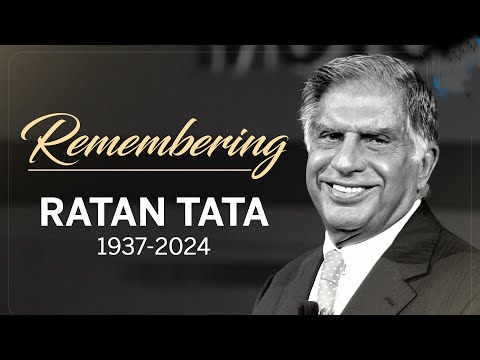
Ratan Tata Passes Away at 87: A Legacy of Innovation, Philanthropy, and Humility
October 10, 2024 – The world mourns the loss of Ratan Tata, former chairman of Tata Sons and one of India’s most influential business leaders, who passed away today at the age of 87. His contributions to business, society, and humanity have left an indelible mark on India and the world.
Born on December 28, 1937, Ratan Tata was the son of Naval Tata and the adopted grandson of Tata Group founder Jamsetji Tata. Despite his upbringing in a life of luxury, he was known for his humility and gentle demeanor. His compassion and dedication to social causes shaped his career and earned him global respect.


Ratan Tata’s career began in 1962 when he joined Tata Motors (then Telco) and Tata Steel, working alongside the company’s workforce in roles that ranged from excavating limestone to assisting in blast furnace operations. Despite his academic background, with a degree in architecture and structural engineering from Cornell University and advanced management training from Harvard, Tata preferred to learn from the ground up.
He rose to prominence in 1981, becoming chairman of Tata Industries and the chosen successor to J.R.D. Tata. His tenure as chairman of Tata Sons, from 1991 to 2012, transformed the Tata Group into a global powerhouse, with the group’s revenue surpassing $100 billion by 2011. Under his leadership, Tata Group expanded into over 100 countries, employing more than 800,000 people and excelling in industries ranging from automotive and engineering to energy and information technology.

Among his many achievements, Ratan Tata oversaw landmark acquisitions, including Tata’s purchase of Tetley Tea, Corus Steel, and Jaguar Land Rover. Yet, his true legacy lies not only in business success but in his dedication to philanthropy. His contributions to education, rural development, and healthcare touched the lives of millions, particularly through the Tata Trusts, which he actively supported throughout his life.

Reflecting on happiness in one of his final interviews, Ratan Tata shared a poignant story of how his perspective shifted over time. “I realized that true happiness comes not from wealth or success but from the joy of giving,” he said. One of his most memorable experiences came when he provided wheelchairs to disabled children. He described the moment when one child clung to his legs and said, “I want to remember your face so that when I meet you in heaven, I can recognize you and thank you once again.” This moment, he said, changed his outlook on life forever.
Ratan Tata’s passing leaves a void in the hearts of many, but his legacy of innovation, compassion, and social responsibility will continue to inspire future generations.


